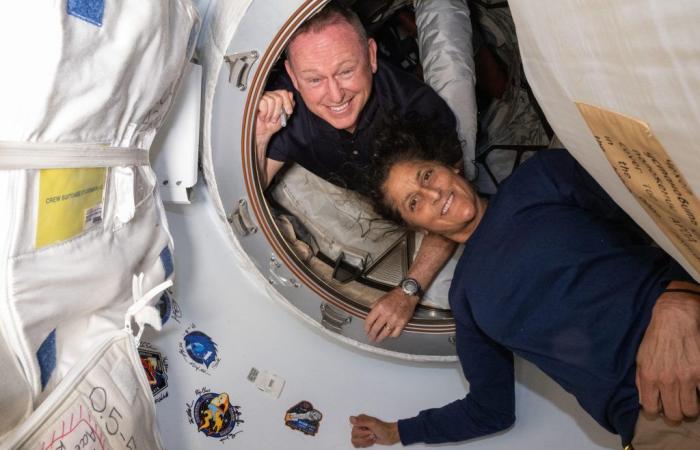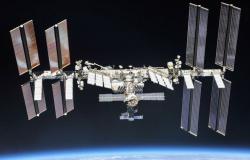Miami, June 28 (EFE).- NASA indicated this Friday that Boeing’s Starliner capsule is not “stranded” on the International Space Station (ISS), that the two astronauts on the mission are safe, that there are no new problems in the ship and that they hope to find solutions within a month and a half.
NASA Commercial Crew Program Manager Steve Stich said in a virtual news conference that there is no desire to bring back astronauts Barry ‘Butch’ Wilmore and Sunita ‘Suni’ Williams, as they continue to work to resolve the technical problems to return to Earth.
Stich, who did not mention any return date for now, said the Starliner did not have any new problems and that the ship “is in good condition.”
The Boeing company’s first manned space mission was due to return on June 14, but has been delayed due to helium leaks.
NASA and Boeing have remained silent over the past week on the capsule’s return, which they had postponed until last Tuesday, sparking speculation and conspiracy theories. Both said on Friday that they would make information about Starliner more frequent.
“What we hope to do today is perhaps clear up some information that has been out there and any misunderstandings about the flight and our status of the Starliner and path forward,” Stich said.
Participants at the press conference said everyone should understand that they are still in the middle of a test mission.
On the other hand, the participants pointed out that they have not received any communication from Russia regarding the satellite of that country that disintegrated on Wednesday and that forced the astronauts of the ISS to temporarily take refuge in the three capsules, including the Starliner.
At least 45 more days
Stich stressed that the vehicle is being reviewed to make sure everything is ready for the Starliner’s return to Earth. “We are talking about a limit of 45 days,” in which a series of battery checks and their performance in orbit will be carried out.
He recalled that the Starliner ship is designed for a 210-day mission, that “the systems are working well” and the software and the thrusters are also being verified for correct operation.
With the extra time in orbit around the ISS, NASA and Boeing experts will also focus on observing how the heaters in the propeller system work and thermal performance, among other tests.
Regarding the helium leaks that were detected, it was reported that they were verified on the 15th and that the filtration rates were decreasing in all the collectors that had leaks.
Boeing upset with media comments
Mark Nappi, vice president of Boeing’s Commercial Crew Program, was particularly hurt by the comments made in multiple media outlets about the mission.
“It’s quite painful to read the stuff that’s out there. We’ve had a really good test flight and it’s being viewed in a rather negative light,” without any real exposure to the facts, Nappi lamented on the teleconference.
And he repeated what Stich had said: “We are not trapped” on the ISS, “the crew is not in any danger and there is no increased risk when we decide to bring them” back to Earth.
He gave a positive recap of the mission so far, with a “really perfect” launch and orbital insertion and all flight test objectives met.
Nappi said that the extension of their stay on the ISS has also allowed them to learn more about what a long-duration mission is, something impossible if they had had to return after eight days.
“So we are docked” at the ISS and “safe,” Nappi said, stressing that if necessary, they could return the ship to Earth.
He acknowledged, however, that the extension of the stay on the ISS was due to two anomalies: the deactivation of the thrusters on the approach to the space laboratory and helium leaks, which requires testing and more time for permanent repair.
If the so-called CFT (Crew Flight Test) mission is successful and NASA certifications are achieved, Boeing will become the second provider of manned and cargo flights to the ISS, just as Elon Musk’s company, SpaceX, already does, under multi-million dollar contracts with the US space agency.
I like this:
I like Charging…






